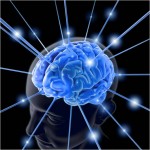 When “Glee” star Cory Monteith died last month from an overdose of heroin and alcohol, his fans were baffled. Monteith, 31, seemed to have everything—a great job, fame and a loving girlfriend and co-star. He had just completed a stint in rehab in April, too. But the pull of addiction is strong and even the smartest people don’t make the best decisions when faced with temptation.
When “Glee” star Cory Monteith died last month from an overdose of heroin and alcohol, his fans were baffled. Monteith, 31, seemed to have everything—a great job, fame and a loving girlfriend and co-star. He had just completed a stint in rehab in April, too. But the pull of addiction is strong and even the smartest people don’t make the best decisions when faced with temptation.
Now, a team led by Susan Ferguson, PhD, from Seattle Children’s Research Institute, and John Neumaier, MD, PhD, from the University of Washington, has used a new technique to identify and learn more about a key reward-based, decision-making part of the brain, the striatum.
The team’s findings have implications for addiction, attention deficit/hyperactivity disorder and obsessive compulsive disorder. Perhaps one day, with the help of medications targeting this part of the brain, addicts like Monteith can better control their urges and avoid tragic endings.
New technique provides researchers with better look at the brain
Ferguson used DREADD receptors, which are artificial receptors inserted into the brain to temporarily alter activity of a particular subset of neurons. DREADD stands for designer receptors exclusively activated by designer drugs. “This technique lets us start to explore what specific cells in the brain are doing during a portion of a task,” said Ferguson.
Simple reward task used to study the brain
The research team studied the brain using a simple reward task with rats. In the first experiment, the rats could choose between two levers that would deliver food. If they chose the low reward lever, they got one food pellet. If they chose the high reward level, they would receive four food pellets.
Every day, the team would switch the high reward lever, and they determined that the animals could not anticipate the change. Instead, the animals had to develop a strategy to learn which lever would give the high reward. After 10 to 14 days, the rats were really good at the task.
During this initial training, the team used DREADD receptors to decrease activity of a specific set of neurons in the striatum. Ferguson said she was surprised to find that the animals could still learn the task.
“We had thought initially that they wouldn’t be able to learn it,” she said. “But, what was really unexpected and interesting is that when we tested the animals one week later without changing the activity of the neurons, we found that the animals weren’t remembering the strategies they had developed to perform well in the task.”
Researchers then did the opposite experiment and increased activity of the neurons during training with a different set of rats, and the results were reversed. “When we had these rats do the task one week later, the animals were better at doing the task compared to the controls,” said Ferguson.
Findings identify neurons that are important in decision-making
What do these findings reveal? “These particular neurons within the striatum are really important for retaining strategies that maximize your ability to make beneficial decisions,” she said. In other words, the neurons identified could be altered or used as a target for medications that would help addicts like Monteith—or patients with ADHD and OCD—make better decisions.
“In the research community, there’s an understanding that we can deliver novel molecules into the brain that will enable us to give targeted therapies,” said Ferguson. “These therapies will allow us to regain control of areas in the brain that have been damaged with fewer side effects, and, may eventually even ‘cure’ people.”
Ferguson and her lab will next look at these same neurons and will study the animal’s ability to wait for a reward. This relates closely with impulsivity and impulse control, both factors related to ADHD.
“We know that kids with ADHD have impulse control problems,” said Ferguson. “When they’re kids, it’s affecting their behavior in the classroom, and a lot of these kids go on to develop other neuropsychiatric disorders.” The aim with this type of ADHD research is to create better, more effective treatments and to probe the link between conditions like ADHD and addiction.
“Direct-Pathway Striatal Neurons Regulate the Retention of Decision-Making Strategies” was published in July 2013 in the Journal of Neuroscience. Study co-authors include Paul E.M. Phillips, PhD, and John F. Neumaier (University of Washington), Bryan Roth, MD, PhD (University of North Carolina Medical School), and Jurgen Wess, PhD (National Institute of Diabetes and Digestive and Kidney Diseases, National Institutes of Health).

